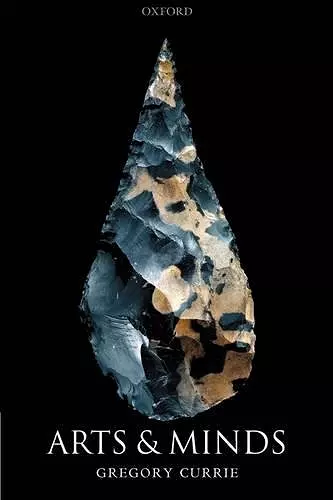Arts and Minds
Format:Paperback
Publisher:Oxford University Press
Published:25th Nov '04
Currently unavailable, and unfortunately no date known when it will be back

Philosophical questions about the arts go naturally with other kinds of questions about them. Art is sometimes said to be an historical concept. But where in our cultural and biological history did art begin? If art is related to play and imagination, do we find any signs of these things in our nonhuman relatives? Sometimes the other questions look like ones the philosopher of art has to answer. Anyone who thinks that interpretation in the arts is an activity that leaves the intentions of the author behind needs to explain how and why this differs so fundamentally from ordinary conversational interpretation, where the only decent models we have are ones that depend crucially on the recovery of intention. Anyone who thinks that imaginative literature has anything to tell us about time had better have a position on how earlier and later relate to past and future. Anyone who thinks that empathy plays a role in literary engagement had better have a psychologically plausible account of what empathy is. Philosophical questions about the arts also go naturally with other kinds of philosophical questions: we can't think constructively about representation in art without thinking about representation; text, meaning, reference and existence get similarly drawn into the conversation. Some ideas that philosophers of art deal with emerge from other disciplines. In literary theory an enormous amount of attention has been lavished on tracing the sources of unreliability in narrative. Is the result adequate to the details of the particular works we call unreliable? Contemporary film theory is generally hostile to the fiction/documentary distinction. Are there in fact any grounds for this? This book of thirteen connected essays examines questions of all these kinds. It ranges from the semantics of proper names, through the pragmatics of literary and filmic interpretation, to the aesthetic function of stone age implements. Some of the essays have not been published before; some that have are here substantially revised.
Gregory Currie is a highly influential, highly prolific philosopher of art who has, in this and other works, succeeded in combining aesthetics with other disciplines, enriching the field in the process. * Notre Dame Philosophical Reviews *
ISBN: 9780199256297
Dimensions: 233mm x 156mm x 17mm
Weight: 429g
296 pages